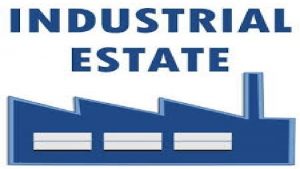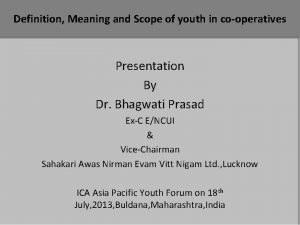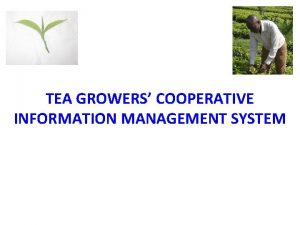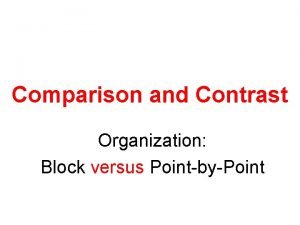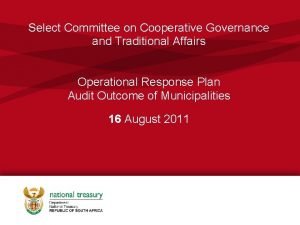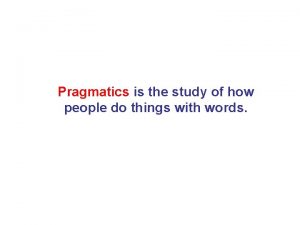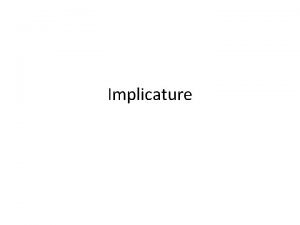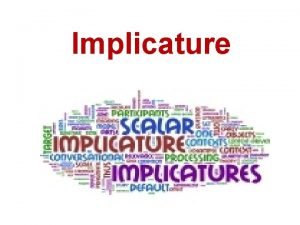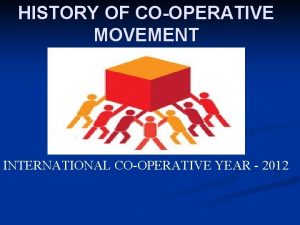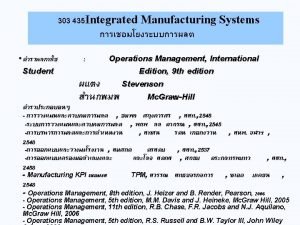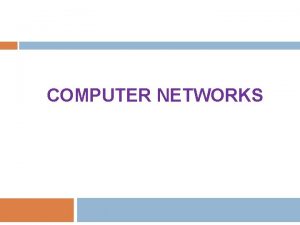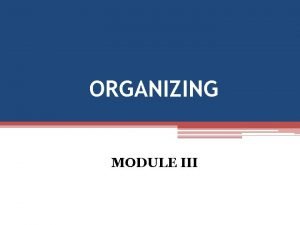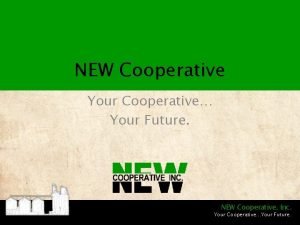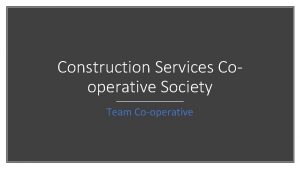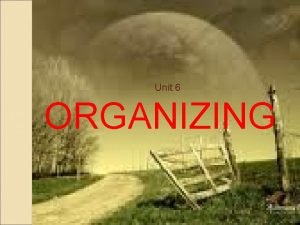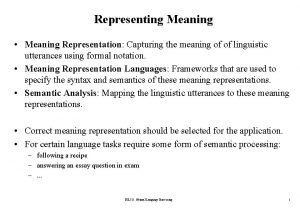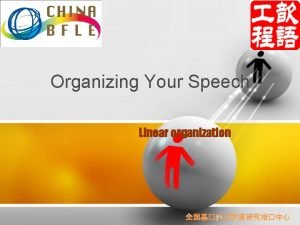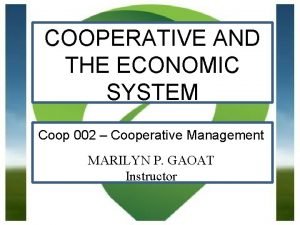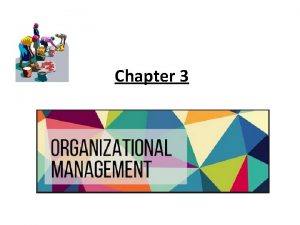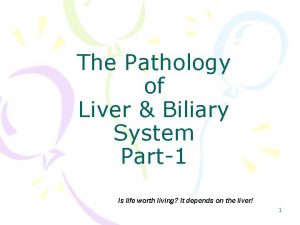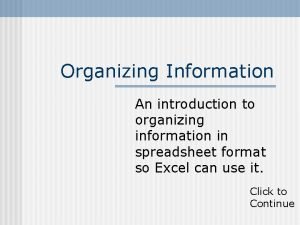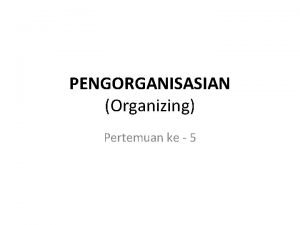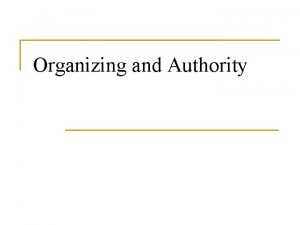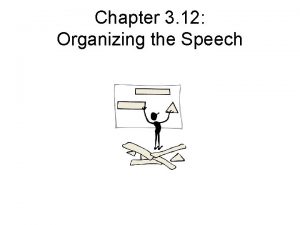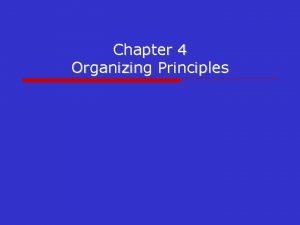Organizing Part1 Meaning organization is system of cooperative



























- Slides: 27

Organizing Part-1 �Meaning: “organization is system of cooperative activities of two or more persons” �Characteristics: 1. It is an objective-oriented activity 2. Division in to department 3. Delegation of authority and responsibility 4. It is depend on Planning 5. It is flexible 6. It is a cooperative activity 7. Its give importance to human factor 8. It established authority relationship

Organizing Part-1 Importance / Advantages 1. Facilitates Administration 2. Specialization is made possible 3. Clarifies authority and responsibilities 4. Maximum use of scare resources 5. Facilitates growth and diversification 6. Encourages creativity and Initiative 7. It Facilitates new Technology 8. Achievements of Goal � Limitations 1. Too much division 2. Lack of balance between authority and responsibility 3. Rigidity 4. Unclear inter-relationship 5. Too many Procedures 6. Ignoring Informal Organization �

Organizing Part-1 � Characteristics 1. Simplicity 2. Definiteness 3. Stability 4. Flexibility 5. Efficiency 6. Balance 7. Co-ordination 8. Specialization 9. Proper Allocation of authority and responsibility 10. Facility for development 11. Significance of Human Element

Organizing Part-1 � Guiding Principles of Organisation 1. Principle Unity of objectives 2. Principle Efficiency 3. Principle of Span of Control 4. Scalar Principle 5. Principle of Delegation 6. Principle of Parity of authority and Responsibility 7. Principle of Absolute Responsibility 8. Principle of the level of authority 9. Principle of unity of Command 10. Principle of Departmentation 11. Principle of Balance 12. Principle of Flexibility 13. Principle of Continuity 14. Principle of Leadership Facilitation

Organizing Part-1 Determining the Objectives Preparing the List of Activities Grouping of Activities or Division of Activities Determining the Position Delegation of Authority and Responsibility Establishing of Interrelationship

Delegation of Authority � Meaning: According to F. G. Moore, “Delegation mean assigning of work to others and giving them authority to do it” � Elements or Process of Delegation Of Authority Responsibility Authority Accountability

Delegation of Authority �Importance Reduce Burden of work 2. For getting benefit of Specialization 3. Necessary due to Geographical Expansion 4. Development of Managers 5. Motivating tool 6. Art of Securing Best Results �Limitation 1. 1.

Centralization Meaning of Centralization � When all the power of decision making are concentrated in top management, it is called centralization � Factors Affecting Centralization (Factors making Centralization Necessary) 1. Leadership 2. Need for Integration 3. Uniformity of action 4. Emergencies 5. Scarcity of managerial manpower 6. Expensive and important decision 7. External factors �

Centralization � 1. 2. 3. 4. 5. 6. 7. Advantages of Centralization Quick Decision Effective control Preserving secrets Continuity of Policy Evaluation of Departmental Activity To Provide Personal Leadership Market Advantage Limitation of Centralization Autocracy Absence of Specialization Increased burden on the top Executive Improper Decision Instability Neglect of Human Elements Corruption

Decentralization Meaning “Decentralization refers to delegation of authority to the employees at different levels in the organization on the context of the duties assigned to them” � � 1. 2. 3. 4. 5. Factors affecting Decentralization Burden of top Executives Need for diversification Need to Preserving the grip on the Market Need for development of managers Need to improve Motivation

Decentralization Advantages 1. Reduce burden of top Executives 2. Development of Initiative and Responsibility 3. Improves Motivation 4. Boosts Morale 5. Simplifies Division of work 6. Development of leadership 7. Effective control and supervision 8. Stability and continuity 9. Flexibility 10. Develops Harmony � � 1. 2. 3. 4. 5. Limitation Difficulties of Coordination Loss in staff service Harmful in Emergency Problem of Control Increased Administrative costs

Centralization and Decentralization �Difference Points Centralization Decentralization Meaning When all the power of decision making are concentrated in top management, it is called centralization When authority to take decision is delegated to all levels of management it is called decentralization Importance of Subordinates Reduces the importance of subordinates Give importance subordinates Decision making power Top level only All level of management Delegation of authority No delegation of authority Delegated to all levels Burden superiors Increase Reduces on of

Centralization and Decentralization Development of Leaders There is no environment for development of leaders As managers at all levels take decisions, leaders are prepared Difficulty in coordination Little difficulty Arise difficulty Size of organization Structure Small Size Big size Rigidity Centralized structure is Rigid Decentralized structure frequently change Where appropriate Small organization Large organization is

Departmentation Meaning Departmentation defined as “the process of dividing activities of an organization into different administrative units” � Objectives of Departmentation 1. Facilitates Expansion 2. To obtain the advantage of specialization 3. To facilitate control 4. Comparative data on profit and loss 5. Better services to the customers

Departmentation � A. ü ü ü METHODS OR BASES OF DEPARTMENTATION Functional Departmentation The grouping the activities accordance with the functions of enterprise The organization under this method gets divided into three major functions: Production, Marketing and Finance. Almost all enterprise are engaged in the production of goods and services. They are engaged also in the sales of these goods and services. The production and sales of goods and services require a definite amount of finance also. That’s why Production, Marketing and finance are considered to be the basic functions. Production activity subdivided into purchase of raw materials, production control and maintenance of machinery. Marketing activity is subdivided into publicity, sales promotion and transportation Financial activity is subdivided into cash control, budgeting, accounting etc.

Departmentation Shareholder s Board of Directors Production Finance Marketing Human Resources

Departmentation � 1. 2. 3. 4. Advantage of Functional Department It facilitates coordination among different department It raises efficiency It help of appointment and training of employees Uniformity of Direction Disadvantage of Functional Department 1. Every functional manager may concentrate only on the progress of his own department. 2. Does not get opportunity of training himself for promotion to higher level of management 3. Other method is more important compare to this one

Departmentation B. Territorial Departmentation Territorial departmentation becomes necessary when the business is running on large scale and its activities are dispersed over a wide area in the country. ü Territorial departmentation is proper when its purpose is to take advantage of certain economies of localized operations. ü The managers being well- informed of the requirements of the local people can easily provide them with appropriate goods and services. ü Immediate delivery can be made. ü General Manager Production Finance Mumbai Factory Marketing Delhi Factory Human Resources Chennai Factory

Departmentation � 1. 2. 3. 4. Advantage Enterprise can earn prestige among local population Better coordination and control Minimize transportation cost Identified need of localized is easily Disadvantage 1. Increase overhead expenses 2. It leads to duplication of functions 3. It create problem of coordination among different local branches of an enterprise �

Departmentation C. DEPARTMENTATION BY PRODUCTS ü Under this system an organization is divided on the basis of product or group of closely related products. ü Its important for large scale organization General Manager Finance Marketing Soap Finance R&D Human Resources Ghee Tooth past Marketing Legal R&D Human Resources Legal

Departmentation � 1. 2. 3. 4. � 1. 2. ADVANTAGE It use specialized knowledge Better customer service can be provided Coordination of all activity Flexibility of organization is possible DISADVANTAGE Some time coordination is difficult Difficult to control all the production department

Departmentation D. Customer Department ü When customer of an enterprise can be clearly divided into different groups and when it seems necessary to provide them a special service to satisfy them. ü Departmentation on the basis of customers is most appropriate ü Sometimes, customers are classified on the basis of age or income. ü For Example: there may be different departments in a garment company such as children’s garments department, men’s garments department and women’s garments department. Marketing Manager Dept. of the Male Adult’s garments Dept. of the Women’s garments Dept. of the Children’s garments

Departmentation ADVANTAGES 1. Special requirements of each group of customers can be satisfied through it 2. Efforts at sales promotion can be planned more scientifically 3. This method is most suitable when a product is to be sold through several channels of distribution � � 1. 2. DISADVANTAGES Managerial Expenses increase The facilities created for the satisfaction of the needs of a particular group of customers only remain unutilized sometimes.

Departmentation E. PROCESS OR EQUIPMENT DEPARTMENTATION Ø In manufacturing establishment, the activities of enterprise are grouped on the basis of processes or costly equipment of special categories. Ø The main objectives here is to achieve certain economic advantages. Ø This method is adopted only by manufacturing units Manufacturing Department Grinding Process Refining Process Finishing Process

Departmentation � 1. 2. 3. 4. 5. � 1. 2. 3. ADVANTAGES The process wise departmentation facilitates coordination Skill can be effectively utilized The responsibility of each of the processes can be easily located It is simplest method It helps reduced cost of production DISADVANTAGES Sometime coordination is difficult It cause wastage and inefficiency through duplication of specific equipments of common use The responsibility of profit cannot be entrusted to process department

Departmentation by Numbers ü in the past, when there was not much difference in the skills of different employees in an enterprise, its organization used to be divided on the basis of simple numbers. ü “Useful at lowest level of the organization structure. As soon as any other factor besides pure manpower becomes important, the simple numbers basis of departmentation fails to produce good results” ü For Example: Military, Textiles Industry. � � 1. 2. 3. 4. 5. 6. Merit of Departmentation Specialization Facility of Growth Opportunity of Progress Better service to Customer Reduction in cost of production Economy

Departmentation Demerits of Departmentation 1. Expensive 2. Difficulties of Control and Coordination 3. Risk of Untimely Introduction � � 1. 2. 3. 4. 5. 6. 7. 8. 9. Factors affecting the choice of the method of Departmentation Ease of Controlling Ease of Coordination Economy Interest in activities Specialization Human Consideration Cost element Effective Planning Key Areas
 Vitamin part1
Vitamin part1 Composite industrial estate meaning
Composite industrial estate meaning Youth cooperative meaning
Youth cooperative meaning Cooperative management system
Cooperative management system Process organization in computer organization
Process organization in computer organization Point by point vs block organization
Point by point vs block organization Ohio valley educational cooperative
Ohio valley educational cooperative Cooperative model example
Cooperative model example Cooperative vs collaborative learning
Cooperative vs collaborative learning Tgt cooperative learning
Tgt cooperative learning Cooperative vs collaborative
Cooperative vs collaborative Cooperative governance
Cooperative governance Cooperative learning ideatore
Cooperative learning ideatore Maxim of relation
Maxim of relation Cooperative thread array
Cooperative thread array Think pair share cooperative learning
Think pair share cooperative learning Cooperative learning pies
Cooperative learning pies Kagan principles
Kagan principles Cooperative pe games
Cooperative pe games Conventional implicature
Conventional implicature Implicature
Implicature Ic camigliano
Ic camigliano History of cooperative movement in india
History of cooperative movement in india Cooperative governance
Cooperative governance Cooperative association
Cooperative association Pigs face cooperative learning
Pigs face cooperative learning What is three step interview
What is three step interview Example of cooperative learning
Example of cooperative learning

